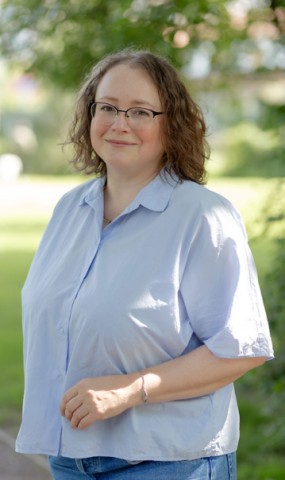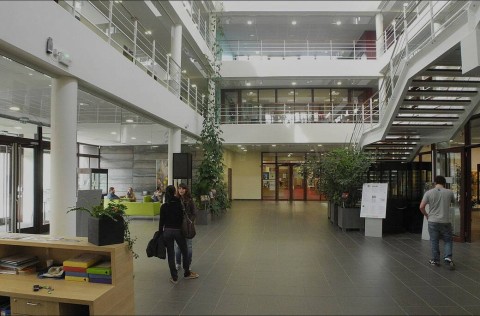Special Issue: Open Science in its many forms - From Open Access to real-world impact: How open science empowered my role in rebuilding Ukraine
Newsletter

Bionote
Natalia Mishyna is a researcher at the SAGE laboratory of the University of Strasbourg, France. She is currently a Marie Skłodowska- Curie Actions (MSCA) MSCA4Ukraine fellow (2023-2025), diligently working on her research project entitled “The Role of Local Authorities in Implementing European Court of Human Rights Judgments.” In addition to her research, Natalia is a Professor in the Constitutional Law Department at the National University 'Odessa Academy of Law', Ukraine. With over 25 years of experience in comparative research on municipal law and human rights, she is deeply passionate about translating Ukrainian legal and cultural realities to international audiences.
Discover how embracing Open Access has elevated my research from national acclaim to international prominence, enabling collaborations with top global institutions like the Council of Europe. Learn how this newfound visibility is not just enhancing my academic journey but also playing a pivotal role in the rebuilding of Ukraine.
Is Open Access worth your time and attention?
For me, the answer is a resounding yes.
Open Access means that research, including journal articles and books, is freely available online to anyone, removing barriers to knowledge and fostering inclusivity in academia. The Marie Skłodowska-Curie Actions Fellowship (MSCA4Ukraine) influenced my decision to adopt the Open Access approach.
Over the past year and a half, I have taken every opportunity to publish my research in open-access journals, making it accessible to a broader audience. After six months, I started to see the first positive results, and now I can truly say that Open Access has transformed my research career.
The change feels like a clear 'before' and 'after' moment.
Enhancing visibility and impact through Open Access
I have studied and researched in several countries - including the UK, USA, Hungary, and France - but I had not fully explored the possibilities of Open Access until I was honored to receive the Marie Skłodowska- Curie Actions Fellowship (MSCA4Ukraine) in 2023.
Before using Open Access, I had published over 200 works on municipal law and human rights in various formats. My textbooks were the most cited. Google Scholar shows that my most popular textbook, 'Comparative Constitutional Law', has been cited over 1,600 times since 2015. However, my academic articles remained virtually invisible. My top journal article from 2018, dedicated to the strategic development of Ukrainian municipal law according to European standards, has only 41 citations - a big difference from the textbook.
For comparison, according to Google Scholar, my two top journal articles from 2023, published with Open Access, have already been cited 24 and 23 times, respectively. These articles cover similar topics to the 2018 publication—municipal law and human rights, specifically the role of local and regional authorities in implementing European Court of Human Rights judgments. This significant increase in citations shows how Open Access can greatly increase the visibility of academic articles, enabling more researchers to engage with and build on my work.
Expanding research impact through Open Access and global collaboration
I have researched local government law and human rights for over 25 years. Initially, without a clear dissemination strategy, the impact of my work was limited to national academic journals and conferences. I had not used professional networks such as LinkedIn to share my research or consider how to engage a wider audience. As a result, I did not fully realize the potential of my work to benefit the wider international academic community.
Embracing Open Access has been instrumental in increasing the visibility of my research by making it freely available. However, through a combination of Open Access and a more strategic approach to dissemination — including using professional networks, collaborating with international colleagues, and actively participating in global conferences — I have significantly expanded my reach. This strategy has helped me to build a robust network of international collaborators, with partnerships now spanning countries such as France, Germany, Norway, Sweden, Spain, and Belgium. Together, these efforts have extended the reach and impact of my work, confirming its relevance and value on a global scale.
Reaching out beyond academia: connecting with the Council of Europe
My research has long been relevant to policymakers, local officials, and NGOs. Still, due to limited accessibility outside Ukraine, I missed important opportunities to engage with those who could apply for my findings.
Open Access changed that. By sharing my work more widely, I began receiving numerous invitations to speak at conferences and workshops for diverse audiences. For example, in 2024, I had the honor of presenting Ukraine’s experiences and needs to the Group of Independent Experts on the European Charter of Local Self-Government at the Council of Europe, strengthening my relationship with the Council.
For my MSCA4Ukraine project, I conducted in-depth interviews on human rights issues at the local level and explored practical implications for Ukraine’s post- war reconstruction. Open Access amplified this research, bringing my expertise in local governance and qualitative research to a broader audience. As a result, the Council of Europe invited me to provide expert input on strategies to address Ukraine’s urgent needs, including rebuilding infrastructure, assisting displaced populations, and restoring local governance structures.
My work now focuses on policy recommendations for sustainable development and frameworks that empower local communities to rebuild with resilience and a commitment to human rights. Open Access has been instrumental in broadening my impact and creating connections that allow my research to support Ukraine’s recovery actively.
Natalia Mishyna
LinkedIn
Facebook
SAGE Laboratory, University of Strasbourg, France
mishyna@unistra.fr
